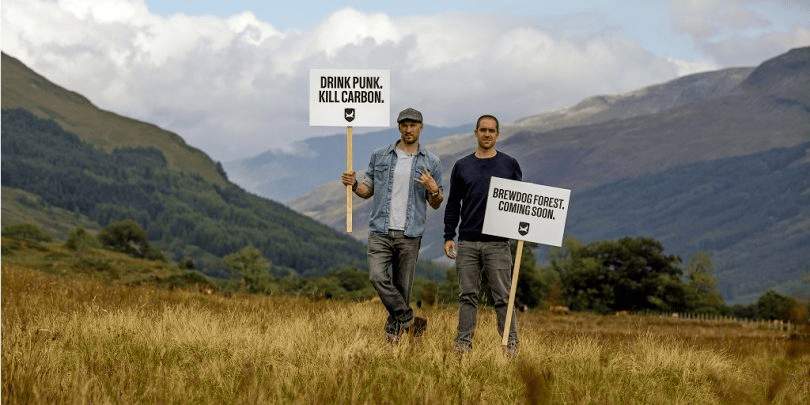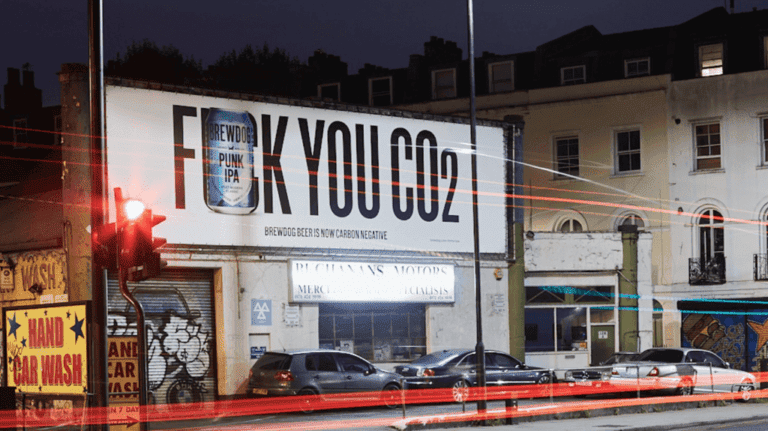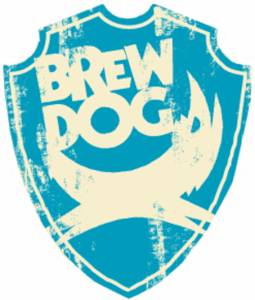
(BrewDog’s James Watt and Martin Dickie)
“Our carbon. Our problem… So, we are going to fix it ourselves” James Watt, co-founder of BrewDog in 2020
When it came to sustainability and managing the impact of CO2 on the world, BrewDog was fierce in its vision five years ago, but things have changed.
Here’s the deal..
BrewDog Pledges to become Carbon Negative
Once a darling of the brewing biz, BrewDog has had a tough couple of years…
Founded by James Watt and Martin Dickie in 2007, BrewDog has grown into an international craft beer operation that exports to 60 countries and runs 102 bars around the world.
In August, 2020 the Scotland-headquartered brewer announced that all of its breweries will become carbon neutral over the next two years:
As part of that £30m climate initiative the company purchased 2,050 acres of Scottish Highlands just north of Loch Lomond, to create the BrewDog Forest, with plans to plant one million trees on that land over the next few years to help offset the brewery’s CO2 footprint.

(BrewDog / Facebook)
“We are committing to removing twice as much carbon as our team members are responsible for in their personal as well as business life,” the Scotland headquartered brewery said at that time. ”We are taking the unprecedented step of double offsetting the carbon footprint of all of our team members for as long as they stay part of our team.”
“We want to set a new standard for sustainability and be a catalyst for the change that our world so badly needs,” Watt said.
BrewDog’s Lost Forest Project an Epic Failure
In 2022 BrewDog submitted a proposal to plant thousands of trees within the Cairngorms National Park, in an attempt to restore the area’s ‘Lost Forest’ and soak up carbon.
In June of that year, the Scottish Forestry agency awarded BrewDog up to £1,229,496 over a 6 year-period to erect a forest fence and dig up a large portion of the National park to plant trees.
According to the Drinks Business, BrewDog released a film promoting its efforts claiming the forest would be “capable of sequestering up to 550,000 tons of CO2 each year”, and telling consumers that for every pack of BrewDog beer sold, “we plant a tree in the BrewDog Lost Forest.”
But in April park staff in the National Park discovered that BrewDog’s Lost Forest had suffered a catastrophic loss estimated to be at least 92,436 trees, that more than half of the pine saplings and almost all the fledgling oak trees, had perished.

BrewDog co-Founder James Watt
Watt cited “an incredibly hot and dry summer” followed by “a harsh winter, where savage gales and sweeping frosts hammered the Scottish Highlands” for the disastrous demise outcome, but seemed to reup his commitment to the cause…
“Standing up to climate change can be an incredibly daunting task and it would be all too easy to disengage,” Watt said in a statement, “to decide to leave it to others and even to deride the efforts of those who choose to fight.”
Then in 2023, after a controversial 17 year run at the helm of BrewDog, Watt stepped away from his from his position as CEO and replaced by James Arrow, who has occupied the COO position since September 2023.
The official word from the company on this succession at that time was that it has been in the works for a while. Watt remains on the BrewDog PLC board and retain his title of “captain and co-founder.’ He also remains a major shareholder in the company he built.
Clearly Watt’s reign within the global craft brewery was destined to hit a wall. During the Covid lockdowns he revealed that his company lost 70% of its revenue overnight.
And in Watt’s absence, the company appears to be moving away from some of its original sustainability commitments…
BrewDog Exits its “Carbon Negative” Vision
In July of 2024, BrewDog announced was letting its claim to be a carbon negative brewery lapse according to the Drinks Business.
In an email to shareholders, new BrewDog CEO James Arrow said that the “market for carbon credits has changed” since BrewDog became carbon negative in 2020.
 He said the high cost of purchasing credits led to the decision. BrewDog previously purchased carbon credits to offset production and distribution emissions to sustain its claim to be carbon negative.
He said the high cost of purchasing credits led to the decision. BrewDog previously purchased carbon credits to offset production and distribution emissions to sustain its claim to be carbon negative.
“We’ve taken the decision to exit the carbon market so we can focus on reducing emissions in our operations and supply chain,” he said.
“It means that we’ll be letting our carbon negative claim lapse over the next few months.”
The UK-based brewer claimed that the cost of high-quality carbon credit schemes has “gone through the roof”, as first reported by The Grocer.
“Some people will be disappointed that we’ll be relinquishing our carbon negative claim, but the use of funds we’d otherwise spend on carbon offsets is better invested in facilitating the decarbonization of our process,” the brewer is now claiming.
###
 American Craft Beer The Best Craft Beer, Breweries, Bars, Brewpubs, Beer Stores, And Restaurants Serving Serious Beer.
American Craft Beer The Best Craft Beer, Breweries, Bars, Brewpubs, Beer Stores, And Restaurants Serving Serious Beer.
